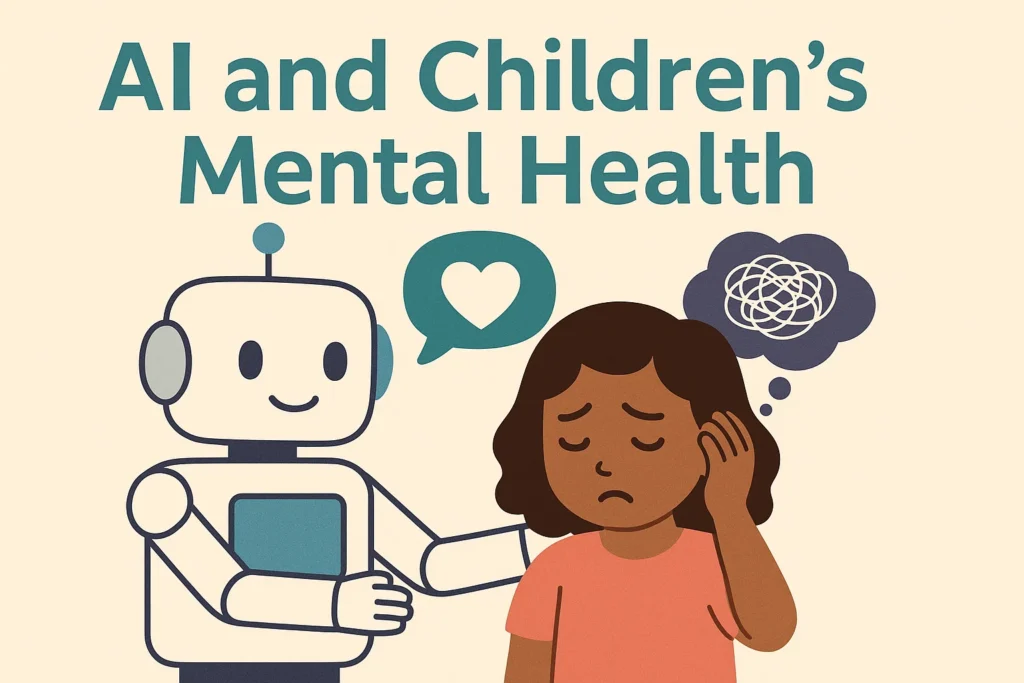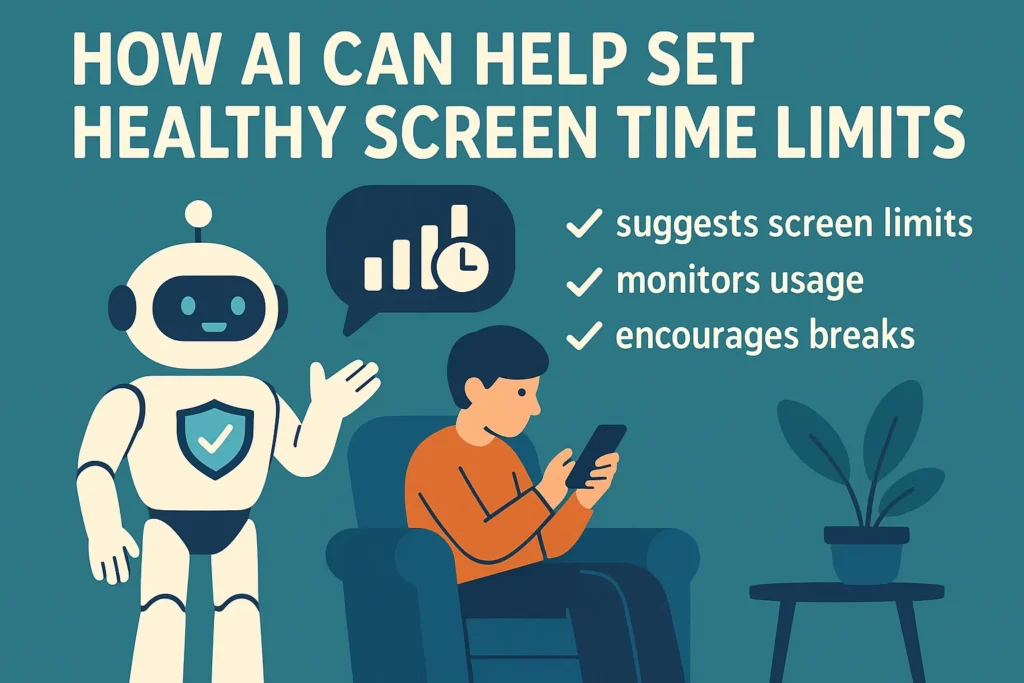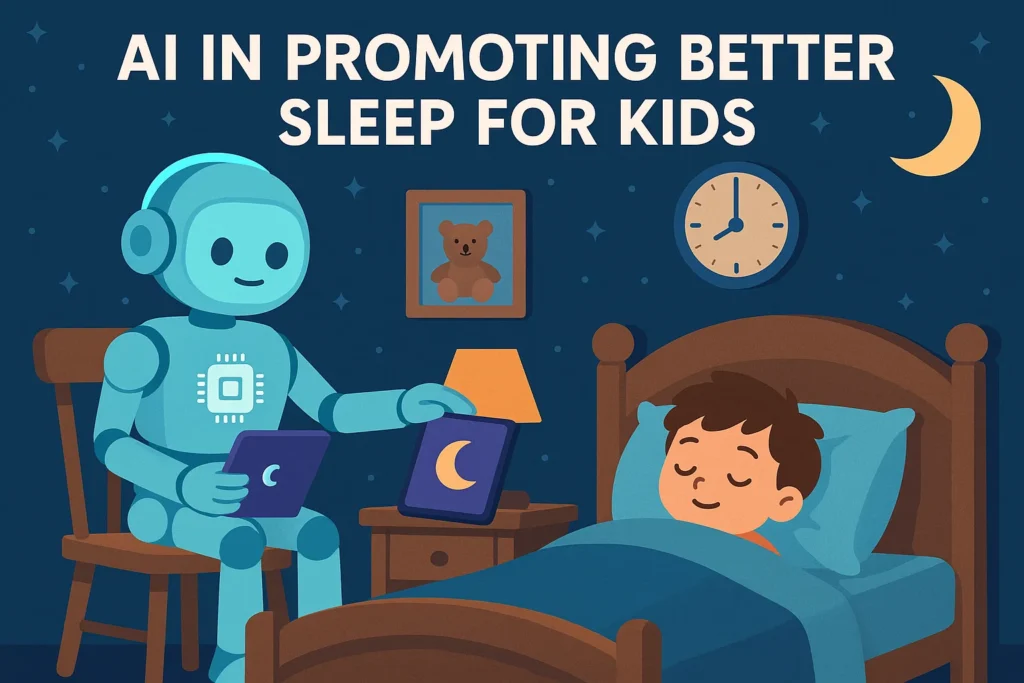📌 Introduction
AI and childrens mental health: Artificial Intelligence is reshaping the way children learn, play, and communicate. From smart tutoring apps to AI-powered wellness tools, technology is now deeply integrated into childhood experiences. At AiBlogQuest.com, we explore the growing link between AI and children’s mental health, highlighting both opportunities and risks. Parents must understand how AI can support emotional wellbeing while ensuring kids don’t become overly dependent on machines.
✅ 7 Key Insights on AI and Children’s Mental Health
-
AI Can Track Emotional Wellbeing
AI-powered apps analyze children’s language, mood, and activity patterns to spot early signs of stress or anxiety. -
Personalized Therapy Support
Chatbots and AI wellness tools offer kids a safe space to express feelings, acting as a first step toward mental health support. -
Risks of Overuse
Excessive reliance on AI can lead to social isolation, reduced face-to-face interactions, and emotional disconnection. -
AI in Education and Pressure
While AI tutors improve learning, constant monitoring may cause performance anxiety if not balanced with positive reinforcement. -
Screen Time and Mental Fatigue
Long hours with AI-powered devices can contribute to fatigue, irritability, and reduced sleep quality in children. -
AI for Mindfulness
AI-based mindfulness and meditation apps encourage children to manage stress and improve focus. -
Parental Role is Crucial
Parents must guide and balance how AI is used, combining technology with empathy, human interaction, and open conversations.
🌱 Why Parents Should Care
AI can boost children’s mental health by offering support and personalized guidance, but without limits, it may worsen stress and dependency. The goal is to use AI as a tool for wellbeing, not a replacement for real human care.
🚀 The Future of AI in Mental Health
In the coming years, AI may integrate with schools, counseling, and healthcare systems, giving parents better tools to monitor and improve children’s mental wellbeing—while keeping ethical safeguards in place.
🔗 Useful Links – AiBlogQuest.com
-
AI for Monitoring Emotional Wellbeing in Kids
-
Parenting Tips to Avoid AI Overuse
❓ FAQ
Q1: Can AI replace child psychologists?
No, AI tools can provide support, but they cannot replace professional therapy and human care.
Q2: Is AI safe for children’s mental health?
Yes, when used responsibly under parental guidance, AI can encourage positive mental health habits.
Q3: How can parents limit AI overuse?
By setting screen time rules, promoting offline activities, and discussing healthy tech habits with kids.
Q4: Do AI therapy chatbots really work?
They provide emotional support but should be seen as complementary, not a substitute for real counseling.



